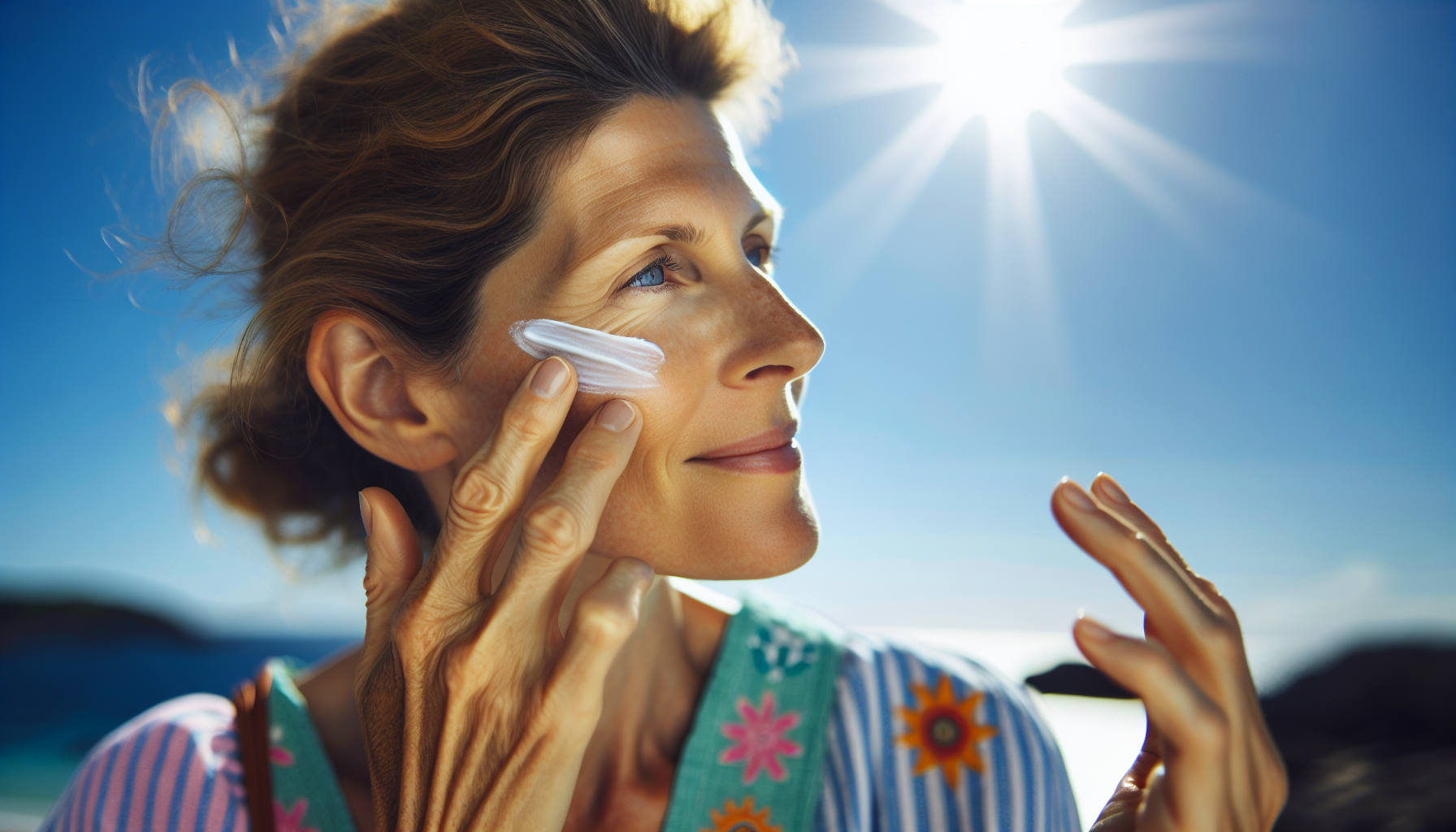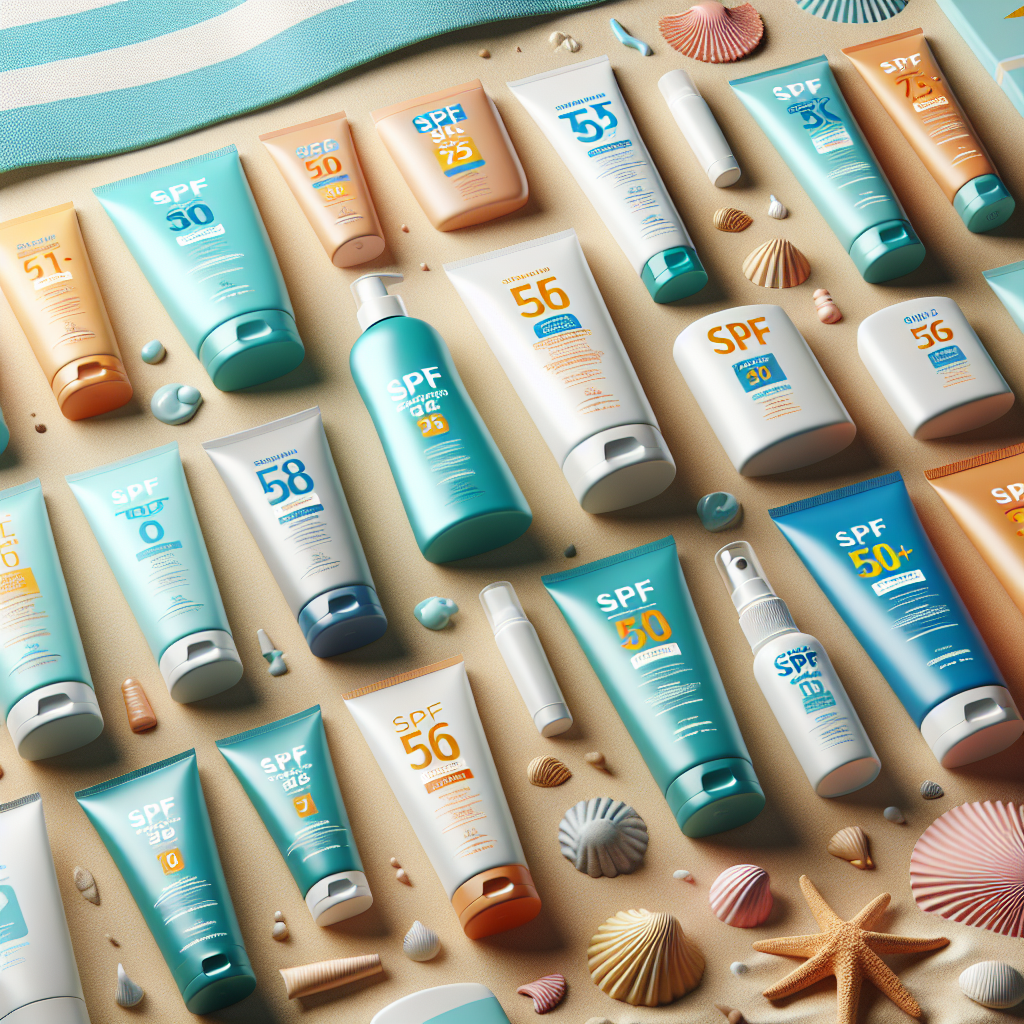Sunscreen is often touted for its essential role in protecting our skin from the harmful effects of UV radiation, but its significance extends beyond just warding off sunburn. As an integral component in anti-aging skincare, sunscreen helps to maintain the skin’s youthfulness and vitality. In this comprehensive exploration, we will delve into the mechanisms of how sunscreen contributes to anti-aging, the selection of appropriate products for various skin types, and best practices for integrating sunscreen into your daily skincare regimen.
Sunscreen: The Guardian against Premature Aging
Ultraviolet (UV) rays from the sun are the primary environmental factor that accelerates the aging process of the skin. This phenomenon, known as photoaging, manifests in the form of wrinkles, fine lines, hyperpigmentation, and loss of elasticity. The application of sunscreen plays a pivotal role in shielding the skin from these rays, thereby slowing down the signs of aging. For an in-depth understanding of skin health and the factors affecting it, consider reading the article on Skin Health which provides a foundation for the importance of sun protection.
The Science Behind Sunscreen and Aging
Sunscreen contains active ingredients that either absorb, reflect, or scatter sunlight. Chemical sunscreens penetrate the skin and absorb UV radiation, converting it into heat, which is then released from the body. Physical sunscreens, containing minerals like zinc oxide or titanium dioxide, act as a shield on the surface of the skin, reflecting and scattering UV rays. Both types help prevent the UV-induced breakdown of collagen and elastin, proteins that are critical for the skin’s firmness and elasticity.
Choosing the Right Sunscreen
It is essential to select a sunscreen that caters to your skin type and provides broad-spectrum protection, meaning it guards against both UVA and UVB rays. For those with sensitive skin, mineral sunscreens are often recommended as they are less likely to cause irritation. Additionally, a sunscreen with an SPF of 30 or higher is advised for adequate protection. For detailed guidance on selecting suitable skincare products, the article Choosing the Right Skin Care Products for Your Skin Type can be a valuable resource.
Daily Application: The Key to Effective Protection
Sunscreen should be applied every day, regardless of the weather, as UV rays can penetrate clouds and even glass. For optimal protection, it should be applied to all exposed skin areas and reapplied every two hours or after swimming or sweating. Combining sunscreen with other sun protection measures, such as wearing protective clothing and seeking shade, enhances its effectiveness.
The Role of Sunscreen in Preventing Specific Signs of Aging
Combatting Fine Lines and Wrinkles
Chronic exposure to UV rays can lead to the formation of fine lines and wrinkles. Sunscreen helps mitigate this by preserving the integrity of the skin’s connective tissues. The Role of Antioxidants in Skin Care: Prevention and Repair highlights the importance of incorporating antioxidants into your skincare, which can work synergistically with sunscreen to combat signs of aging.
Preventing Hyperpigmentation
Sun exposure is a significant contributor to the development of age spots and uneven skin tone. By using sunscreen consistently, you can protect your skin from developing these pigment changes. Understanding the process and prevention methods is further elaborated in How to Treat and Prevent Skin Hyperpigmentation.
Maintaining Skin Elasticity
The elasticity of the skin diminishes with age, and UV radiation accelerates this process. Sunscreen helps maintain skin elasticity by protecting the skin’s elastin fibers from UV damage, as discussed in the article Steps for Improving Skin Elasticity as You Age.
External Resources for Further Information
To comprehend the full scope of sunscreen’s benefits and the science behind UV protection, here are some niche resources:
- The American Academy of Dermatology offers a comprehensive Q&A addressing common questions about sunscreen and its use.
- The Skin Cancer Foundation provides valuable insights into how sunscreen can prevent skin cancer and signs of aging.
- The International Dermal Institute presents an in-depth look at how ingredients in sunscreen work to protect the skin from aging.
Integrating Sunscreen into Your Anti-Aging Strategy
Incorporating sunscreen into your daily skincare routine is a straightforward yet powerful step in your anti-aging strategy. It should be applied as the final step in your morning skincare routine, following moisturizers or serums, and before makeup. For those wearing makeup, sunscreens now come in various formulations that can serve as a primer or are integrated into foundations with SPF.
Conclusion
The consistent use of sunscreen is a critical factor in an effective anti-aging skincare regimen. It not only protects against the immediate threat of sunburn but also combats the long-term effects of UV exposure, which include premature aging and an increased risk of skin cancer. By understanding the importance of sunscreen, selecting the right product for your skin type, and applying it as part of your daily routine, you can preserve your skin’s health and youthful appearance for years to come. With the combination of sunscreen and a holistic approach to skincare, including proper nutrition, hydration, and stress management, you can significantly enhance the resilience and vitality of your skin.



